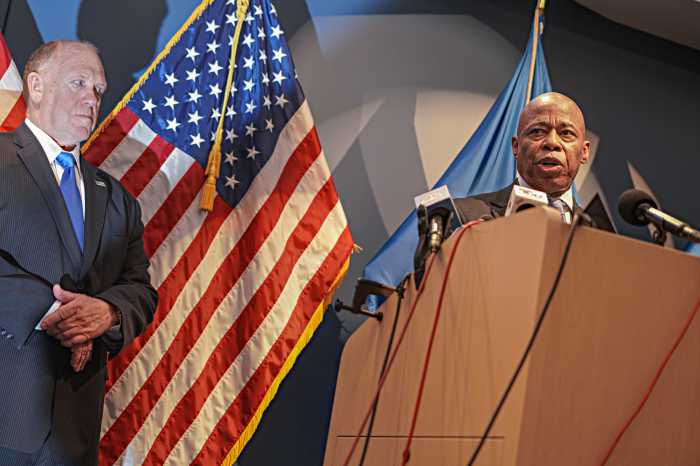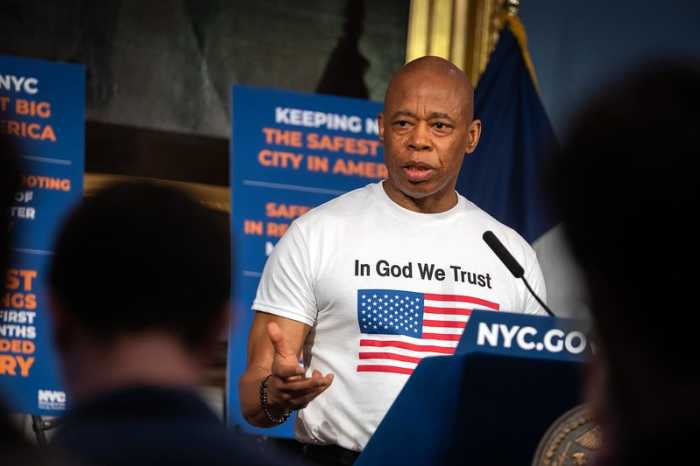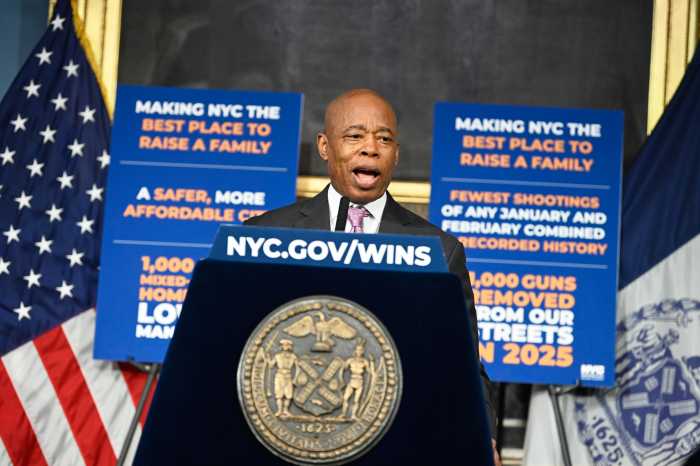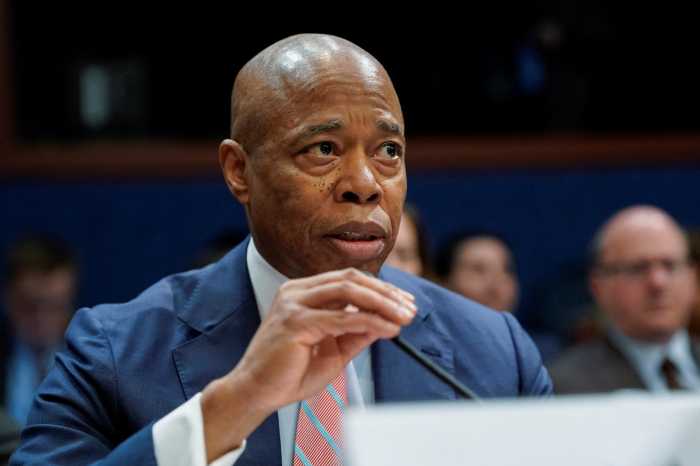A state judge on Friday extended an order barring Mayor Eric Adams’ administration from allowing federal immigration authorities to re-establish offices on Rikers Island, handing a win to the City Council that filed a lawsuit April 15 seeking to block the move.
Judge Mary Rosado on April 25 extended a temporary restraining order (TRO) she issued earlier this week that will continue to block the Adams administration’s executive order allowing federal Immigration and Customs Enforcement (ICE) to hold offices within the Rikers Island jail complex for the first time in over a decade. The city kicked ICE off Rikers with the passage of a 2014 sanctuary city law that barred the agency from operating within city-run jails, as a means of protecting undocumented immigrants from deportation.
The judge extended the order until the next court hearing in the case, scheduled May 29, according to court records.
“Until we have that hearing, I’m going to continue the TRO,” Judge Rosado said.
The judge’s decision provided an early victory to the City Council in its efforts to halt ICE from returning to Rikers Island. She appeared to be receptive to arguments from the council’s outside attorney — Daniel Kornstein — that extending the restraining order is simply “maintaining the status quo.”
City Council Speaker Adrienne Adams, in a news conference following the hearing, said the judge’s move helps protect undocumented New Yorkers who could be vulnerable to President Trump’s mass deportation efforts if and when ICE comes back to Rikers.
“This represents an important step by the court to protect public safety in our city and keep all New Yorkers safe,” the speaker said. “It validates our efforts to defend New York City from being made even more vulnerable to the Trump administration’s extreme agenda of unconstitutional activities by blocking the mayor from enabling these attacks on the safety and rights of the people he is supposed to represent.”
Mayor Adams’ Frist Deputy Mayor Randy Mastro — who signed the executive after the mayor delegated the task to him — said the administration was “disappointed” by Rosado’s ruling. He pushed back on Kornstein’s claim that the move merely preserves the status quo, noting that the order’s stated purpose is to make it easier for federal authorities to target criminal gangs.
“It’s not maintaining the status quo,” Mastro said. “It’s preventing the city from protecting itself against violent, transnational criminal gangs that have been declared terrorist organizations and cooperating with federal law enforcement in criminal investigations. This is a delay, but we will continue to pursue our legal rights.”
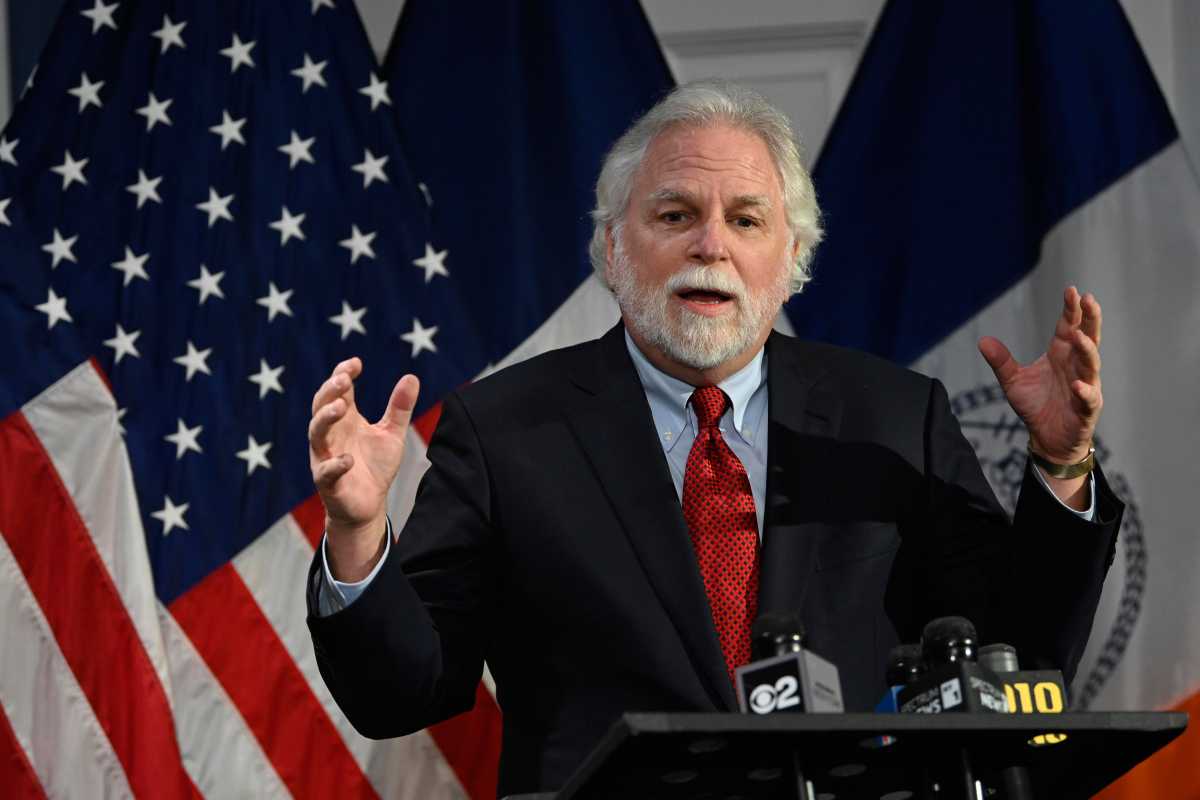
Mastro and the administration’s attorney James Catterson both painted the council’s suit as a “political diatribe masquerading as a lawsuit.”
In their suit, the council’s lawyers argue the order was the product of a “corrupt bargain” between the mayor’s private defense attorney and the Trump Justice Department to drop his criminal indictment — a move they charge violates the city’s conflicts of interest law.
“The conflict of interest makes it impossible for the mayor to do what he is trying to do here and makes the executive order illegal, null and void,” Kornstein said in court.
Mayor Adams, his attorney, and senior DOJ officials have disputed that there was any quid pro quo.
Yet the mayor announced his intention to sign the order just a few days after the DOJ issued a memo calling for his charges to be dropped in February. And Mastro only signed the directive after Federal District Judge Dale Ho officially dropped the case earlier this month.
Furthermore, the council alleges that even though Adams delegated the task of signing the directive to Mastro, he did not truly remove himself from the process.
Mastro said he signed the order after conducting an “independent review” and that it is “narrowly tailored” to allow collaboration between ICE, along with other federal agencies, and the city Department of Correction on criminal investigations but not civil immigration enforcement matters.
The first deputy mayor said the city and the federal government have still yet to hash out a memorandum of understanding that he says would explicitly dictate what ICE will and will not be able to do on Rikers.
Still, council leaders fear that simply by allowing ICE to operate on Rikers, the agency will inevitably end up trying to round up migrants who have not been accused of committing violent crimes for deportation, in violation of the city’s sanctuary laws. The council and their attorneys have argued that they do not trust the Trump administration to abide by any agreement they enter into with the city.
Kornstein pointed to Trump border czar Tom Homan’s pledges to pursue undocumented immigrants regardless of local sanctuary laws like New York’s.
“Tom Homan said…sanctuary laws have to be gotten around,” Kornstein said. “Then he said he wants everyone, not just major criminals, he said even shoplifters. He wants them all.”




